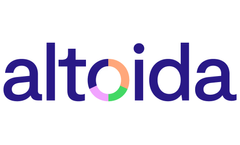Neurology Research Articles & Analysis: Older
12 articles found
(5) Neurobiology: In the field of neuroscience, CD Genomics' Ribo-seq services offer insights into translational regulation in the brain and nervous system, supporting research on neurological disorders and neurodevelopment. (6) Plant Biology: Ribo-seq services are pivotal in studying how plants adapt to various growth conditions and environmental ...
People living with frontotemporal dementia, or FTD, are commonly misdiagnosed with psychiatric disorders or Alzheimer’s disease and other causes of dementia, such as Parkinson’s disease and vascular dementia. While frontotemporal dementia and Alzheimer’s disease can both cause dementia, there are distinct differences in impacted regions of the brain and, consequently, ...
Meditation is often thought of as an avenue to clarity and self-awareness, but it may also be an avenue to better brain health. Emerging research suggests meditation may have significant benefits to brain health, ranging from improved mental and behavioral health to enhanced cognitive function. In this article, we will break down how meditation helps the brain and provide helpful tips for ...
Many neurological diseases, including Alzheimer’s disease, can be thought of as continuums, whether the presence and manifestation of the disease are different depending on the stage of the disease. In this article, we provide a high-level overview of the stages in the Alzheimer's disease continuum, with a focus on preclinical Alzheimer’s disease and its importance in patient care and ...
In addition to the pandemic, the digitization of healthcare is rapidly shifting clinical trials from analog to hybrid or fully decentralized clinical trials, catalyzing the development and implementation of digital health technologies to support clinical research. Digital endpoints not only support the decentralization of clinical trials but also provide a means to collect more ...
Alzheimer’s and Parkinson’s disease are both neurological diseases that cause progressive damage to the brain, resulting in a decline in neurocognitive function. While Parkinson’s disease is known for affecting movement and function and Alzheimer’s disease is known for affecting cognition, they are a bit more complex than that. Below, we provide an overview of ...
Parkinson’s disease is a progressive neurodegenerative disease that is most commonly known for affecting movement. It primarily impacts dopaminergic, or dopamine-producing, neurons in a specific area of the brain known as the substantia nigra. Typically, symptoms develop slowly over years and continue to worsen as the disease progresses. While the manifestation of symptoms tends to vary ...
It is no secret that glucose, a form of sugar, is the main source of energy for every cell in our bodies, including our brain cells. Because the brain is packed with neurons, it uses more energy than any other organ in the body. Our brains reward us for consuming sugar. Whether you are eating a delicious meal, sharing a kiss with someone you love, or enjoying a sugary treat, the mesolimbic ...
By now, you are likely aware of many of the well-established risks associated with smoking cigarettes, such as cancer, asthma, chronic obstructive pulmonary disease (COPD), diabetes, cardiovascular disease, and stroke. But did you know that research has discovered a link between smoking and cognitive decline? This research emphasizes the importance of identifying and controlling modifiable risk ...
Humans are inherently social beings who thrive on making and maintaining social relationships. Connecting with and supporting one another forms deep bonds that make us feel seen, valued, and like we belong. These social interactions are not only important for our emotional well-being but also for our physical well-being-maybe even more so than originally thought. Loneliness, an increasingly ...
The COVID-19 pandemic has catalyzed the implementation of decentralized clinical trials in neurology, bringing the immense benefits of clinical trials to light. This industry-wide push towards trial decentralization has emerged as a key element for improving clinical trial efficiency and improving the experience for patients and physicians. By utilizing digital technologies, such as wearables, ...
On the clinical end, this understanding grants researchers access to “disimpassioned passionate approach”, wherein treatment contains more personalized care. ...



